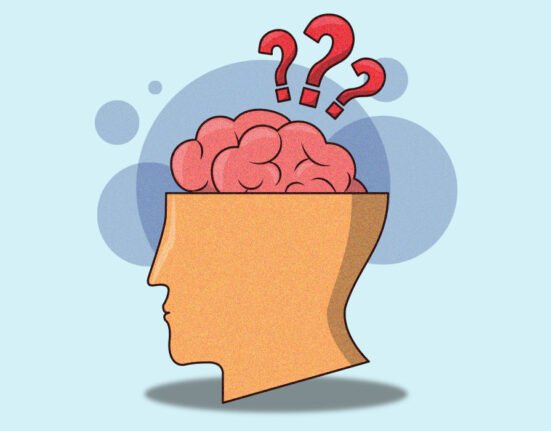Dreams that involve sex themes or content are commonly known as sex dreams or sexually explicit dreams. They are a part of life. Are experienced by most individuals at some point. Within these dreams, one may encounter situations or partners that carry undertones, such as past relationships, unfamiliar individuals, celebrities, or even fictional characters. While the specifics of these dreams can vary greatly they usually do not involve sexual activity and instead emphasize psychological or emotional connections rather than physical ones. It is important to keep in mind that sexual dreams are quite normal and typically do not warrant any response or interpretation. However if someone is experiencing distressing, recurring, or troubling dreams it may be worth considering seeking guidance and support, from a health professional.
Dreams’ Function on Human Psychology
Dreams play a critical role in human psychology and constitute a subject of great personal interest. Here are some ways in which people believe dreams affect psychology:
- Dreams are stories the brain tells while it sleeps in the REM (Rapid Eye Movement) Phase.
- Most people have many dreams each night, which get longer throughout the night.
- Dreams expose our deepest desires and conflicts.
- According to Freudian ideas, someone might urge them to repress their emotions.
- The self-organization and information processing that occurs in the sleeping brain could give birth to dreams.
- They could also be a way of unconsciously processing repressed feelings or cravings.
Interpretation of Sexual Dreams
- Sexual Intercourse with Stranger or Friend: Your desire may be high and the answer to your demand, the desire not met.
- Recurrent fantasies involving an ex-partner: This could indicate anything, from adjusting to a new spouse to the lingering anguish for having lost the ex.
- Dreams including BDSM and sex: The acronyms for BDSM art bondage, discipline, sadism, and masochism. A very suppressive environment may be revealed by your dream of a parent, indicating that you are accustomed to being attracted to the idea of being tied and dominated by a loved person.
- Sex with an authoritative person: This ideal may signify someone with a nice, narcissistic parent who never paid attention to them for long. They fantasize about an overwhelming feeling of being fully dominated by someone else.
Sexual Dreams and Relationships
1) Sensitivity Levels:
In a romantic relationship, the closeness and intimacy of the people are likely to influence the nature of sexual dreams. In many close relationships, dreams may indicate stronger emotional ties and common experiences.
2) Sexual Dream Frequency:
Research has shown that it is people in committed sexual relationships that, are more likely to have dreamed about having sex, as compared to singles and those not currently sexually active.
3) Content Variability in Dreams:
Dream content may vary depending on the nature of a relationship (casual, committed, long-term, etc.). For instance, dreams in the context of a committed long-term relationship could be about sharing emotional and physical closeness.
4) Dreams and Aspirations:
Dreaming is the place for unsaid wishes and desires. In a safe and trustworthy relationship, people may prefer to act out their sexual fantasies in their dreams.
The Effects of Sexual Dreams Through Cross-Cultural Lens
The following are some important things to think about with regard to how cross-cultural perceptions affect sexual dreams:
1) Diverse Cultural Beliefs and Norms:
It is evident that diverse cultural norms and beliefs can affect the interpretation of sexual themes in dreams, given that different cultures have different perceptions of sexuality. One of these characteristics is sexual expression, which may be accepted in some cultures but not in others.
2) Boundaries and Stigma:
Sexual dreams may be a taboo in certain cultures in which any form of sexuality is avoided. This might influence how one perceives and talks about their sexual dreams, with such a possibility of being pushed away or refused.
3) Symbolism and imagery:
Culture creates a lot of myths, symbolism, and, archetypes about sexuality that affect the meaning and content of the sexual dreams. Symbols could be very dissimilar among different civilizations.

4) Expectations and Gender Roles:
The rigid adherence to gender roles could evoke feelings of guilt or repression related to the sexual fantasies that transgress social norms. For example, a person may feel a conflict between dream sexuality and gender roles that their society has assigned to them.
Effects of Sexual Dreams on Mental Health
Positive effects
The following are some possible ways that sexual dreams may affect one’s mental health:
- Positivity in Desire Expression: Dreams can serve as helpful outlets for people who often have sexual fantasies and urges. This may give one the feeling of fulfillment and contentment and may have a positive contribution to one’s mental well-being.
- Emotional Intelligence: Dreams absorb and give meaning to feelings and experiences, including sexual ones, within the mind. Individuals can explore their needs and emotions in a secure environment that provides support.
- Greater acceptance of oneself: Understanding and accepting sexual dreams enables a person to have a positive self-image and increased self-acceptance. It may make one feel more comfortable with one’s own desires and fantasies.
- Unmet Needs Reflected: Sex-themed dreams sometimes point to unmet emotional or literal needs. Dream analysis allows people to recognize these needs to seek gratification in their day-to-day waking lives, and possibly to enjoy better mental health.
- Resolution of Conflict: Dreams sometimes show some unresolved problems or needs that people have in their relationships, even sexually. Identifying and dealing with these problems can lead to better relationships, more satisfying interpersonal interactions, and improved mental health.
Negative effects
- Stress & Anxiety: Some individuals may become anxious, distressed, or uncomfortable when their dreams about sexual matters, conflict with their own beliefs, values, or social conventions.
- Shame and Guilt: Some individuals who experience sexual fantasies that contradict their cultural or religious views about sexuality may feel guilty or ashamed, especially if these beliefs are strong.
- Conflicted emotions: Sometimes the content of a sexual dream challenges one’s knowledge of their sexual orientation, desires or identity, resulting in the feeling of uncertainty or conflicting emotions.
- Inability to Sleep: Intensely or upsetting sexual nightmares can disrupt sleep, which may negatively impact individuals’ mental and physical well-being.
- Relationship Stress: People often have guilt, jealousy, or insecurity when they have sexual dreams about someone who is not their partner.
The individual should handle sexual dreams with the utmost sensitivity and with respect to his or her own individuality because they can be both beneficial and potentially detrimental to mental health. Many people use dreams as a natural way to control their feelings and sexual desires. For some people, the reasons for being difficult were shame, fear, or alternative views. Such an acknowledgment might contribute to our promoting a more encompassing and empathetic appreciation of our intricate nature, by recognizing and endorsing numerous experiences and perspectives, pertaining to sexual dreams.
Read More Article:
- How To Maintain A Healthy Relationship: Know About The Tips?
- “Yes I am a Hijara but I am a human first”
- Single-Sex Schools and Their Impact on Children
- The case of Little Hans













Leave feedback about this